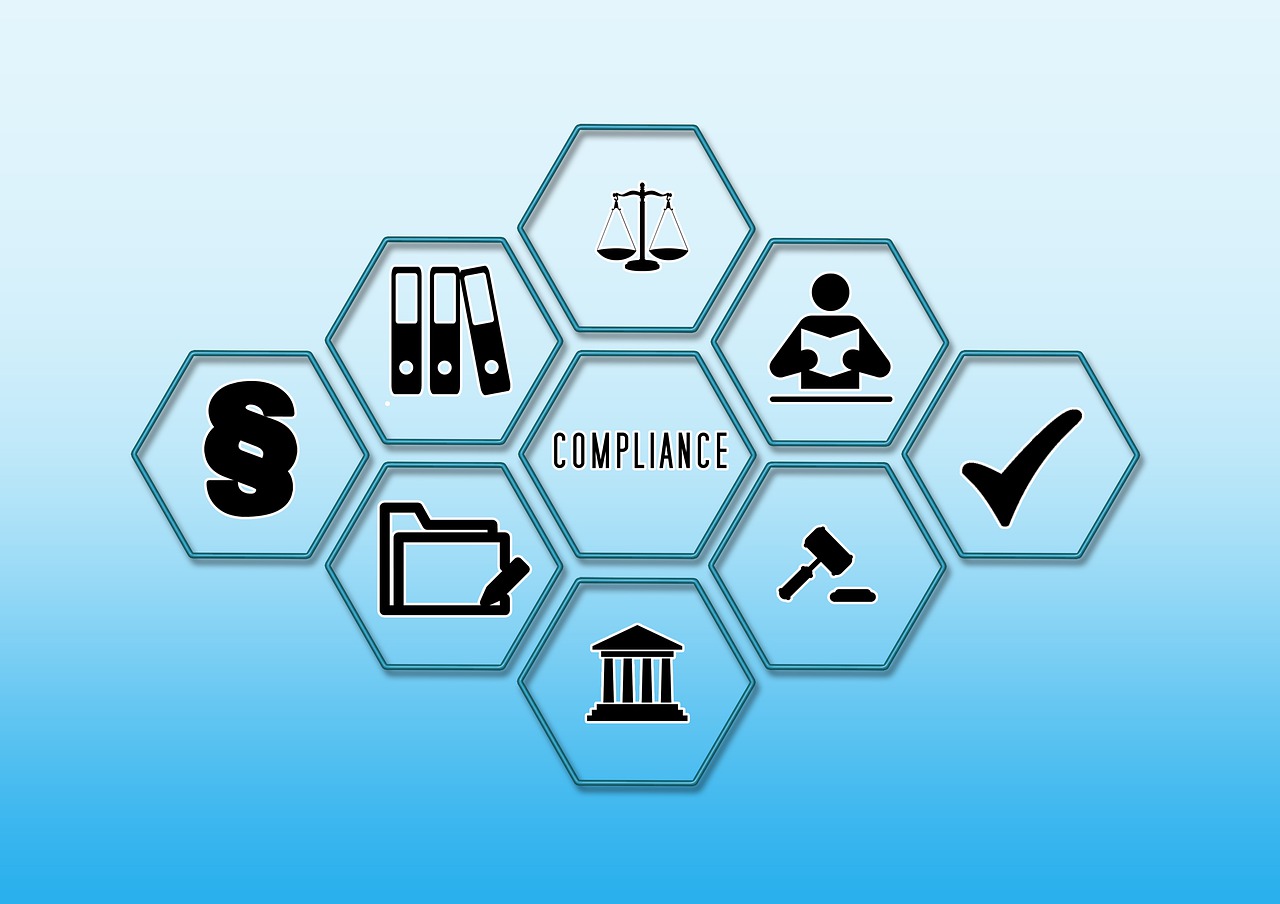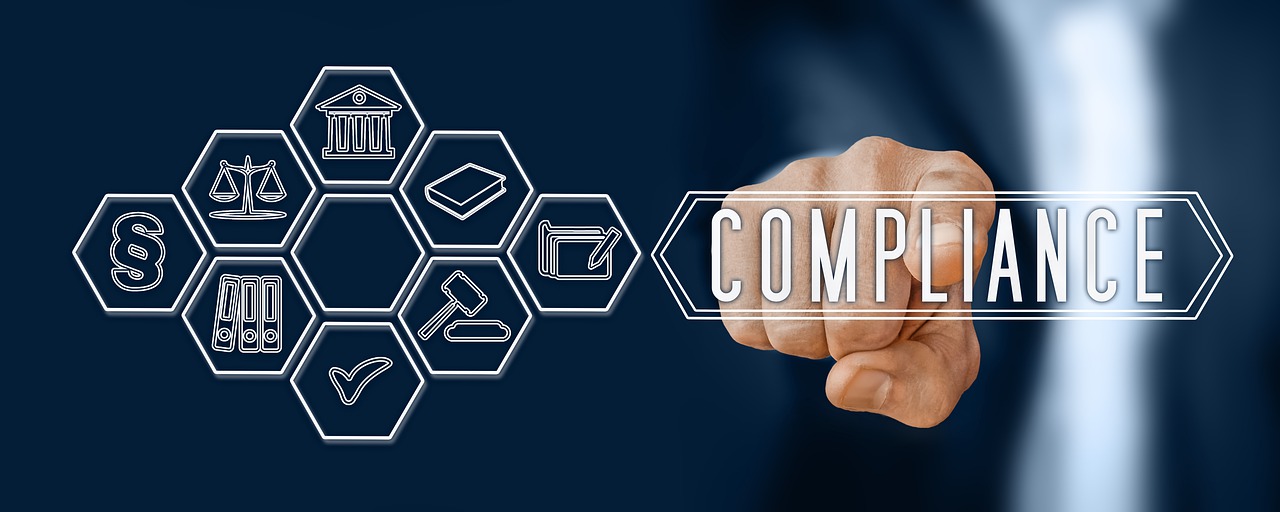In today’s technological landscape, social media has become an integral part of our daily lives. However, for software companies, navigating the complex world of social media claims compliance can be a daunting task. With the ever-evolving regulations and legal implications, it is crucial for these companies to stay informed and take proactive measures to ensure compliance. This article aims to shed light on the importance of social media claims compliance for software companies and provide valuable insights for business owners and executives in this industry. We will address common questions and concerns regarding compliance, empowering companies with the knowledge and guidance needed to protect their interests and mitigate risks in the digital age.
Overview of Social Media Claims Compliance
What is Social Media Claims Compliance?
Social media claims compliance refers to the practice of ensuring that the claims made by software companies on social media platforms are accurate, truthful, and compliant with applicable laws and regulations. It involves developing and implementing policies, training employees, and monitoring social media content for compliance.
Why is Social Media Claims Compliance Important for Software Companies?
Social media has become a powerful marketing tool for software companies to promote their products and services. However, making false or misleading claims on social media can lead to legal consequences, damage to the company’s reputation, and loss of customer trust. Compliance with social media claims regulations is essential to protect software companies from legal liability and maintain their credibility in the market.
Benefits of Social Media Claims Compliance for Software Companies
Compliance with social media claims regulations offers several benefits to software companies. Firstly, it helps companies avoid legal penalties, fines, and lawsuits that may result from non-compliance. Secondly, it enhances the company’s reputation and trustworthiness among customers and stakeholders. Thirdly, it promotes fair competition by ensuring that all companies adhere to the same standards in their social media marketing. Overall, social media claims compliance contributes to the long-term success and sustainability of software companies in the digital age.
Understanding the Legal Framework
Regulations and Laws Governing Social Media Claims Compliance
Software companies must comply with various regulations and laws that govern social media claims compliance. These may include:
- Federal Trade Commission (FTC) guidelines on deceptive advertising
- Consumer protection laws
- Intellectual property laws
- Privacy and data protection laws
- Anti-spam laws
Understanding these regulations and laws is crucial for software companies to ensure that their social media marketing practices comply with the legal requirements and avoid any potential legal issues.
Key Legal Concepts for Software Companies to Consider
When navigating social media claims compliance, software companies should be aware of important legal concepts such as:
- Truth in advertising: Companies must ensure that any claims made on social media are truthful and supported by evidence.
- Substantiation: Software companies may need to provide substantiation for their claims, especially for health claims or product performance guarantees.
- Disclosures: Clear and conspicuous disclosures must be made for any material connections, sponsored content, or incentivized reviews.
- User-generated content: Companies should understand their responsibilities and potential liabilities regarding user-generated content on social media platforms.
By familiarizing themselves with these legal concepts, software companies can better navigate the legal landscape and develop effective social media claims compliance strategies.

Developing a Social Media Policy
Crafting a Comprehensive Social Media Policy
To ensure social media claims compliance, software companies should develop a comprehensive social media policy. This policy should define the company’s expectations, guidelines, and procedures for employees’ use of social media for business purposes. It should address key areas such as:
- Authorized users and account management
- Content creation and approval process
- Rules for engaging with customers and responding to inquiries
- Guidelines for sharing and endorsing third-party content
- Protection of confidential information and intellectual property
- Compliance with legal requirements
- Consequences for policy violations
A well-crafted social media policy provides clarity and guidance to employees, minimizing the risk of non-compliance and potential legal issues.
Addressing Legal Considerations in the Social Media Policy
Software companies must incorporate legal considerations into their social media policies. These considerations may include:
- Compliance with FTC guidelines on disclosure and transparency in advertising
- Protection of intellectual property rights when sharing content on social media
- Privacy and data protection obligations when handling customer information
- Compliance with specific industry regulations and guidelines
By addressing these legal considerations explicitly in the social media policy, software companies can ensure that employees are aware of their responsibilities and the legal implications of their social media activities.
Key Elements to Include in a Social Media Policy for Software Companies
A comprehensive social media policy for software companies should include the following key elements:
- Definition of social media and its role in the company’s marketing strategy
- Authorized users and account management guidelines
- Clear guidelines on the use of the company’s branding, trademarks, and copyrighted materials
- Content creation and approval process, including standards for accuracy, truthfulness, and compliance with legal requirements
- Guidelines for responding to customer inquiries, reviews, and feedback
- Protocols for addressing potential legal issues such as defamation, copyright infringement, or privacy violations
- Training and education requirements for employees
- Consequences for policy violations, including disciplinary actions
By including these key elements, software companies can establish a robust social media policy that aligns with legal requirements and guides employees in their social media activities.
Training and Educating Employees
Importance of Employee Training in Social Media Claims Compliance
Training employees on social media claims compliance is crucial for software companies. Employees need to understand the legal and regulatory requirements surrounding social media marketing to ensure compliance and minimize the risk of legal issues. Proper training also empowers employees to effectively represent the company’s brand and communicate with customers on social media platforms.
Best Practices for Training Software Company Employees
When conducting training on social media claims compliance, software companies should consider the following best practices:
- Start with the basics: Provide employees with an overview of social media claims compliance, the legal framework, and the company’s social media policy.
- Tailor the training to different roles: Different employees may have different responsibilities and involvement in social media marketing. Customize the training to address their specific needs and roles.
- Use real-life examples: Illustrate concepts and potential pitfalls with real-life examples to make the training more relatable and applicable.
- Provide practical guidance: Offer practical tips and guidelines on creating compliant social media content, responding to customer inquiries, and handling potential legal issues.
- Update training regularly: Social media and its legal landscape are constantly evolving. Regularly update the training to keep employees informed about changes and new regulations.
By following these best practices, software companies can ensure that their employees are knowledgeable, competent, and compliant in their social media activities.
Creating an Engaging and Effective Training Program
To create an engaging and effective training program for social media claims compliance, software companies should consider the following strategies:
- Use interactive training methods: Incorporate interactive elements such as quizzes, case studies, and discussions to keep employees engaged and encourage active learning.
- Provide ongoing support: Offer resources and reference materials that employees can access to refresh their knowledge and find answers to common questions.
- Foster a learning culture: Encourage employees to ask questions, seek clarification, and share insights related to social media claims compliance. This promotes a culture of continuous learning and improvement.
- Seek feedback: Regularly gather feedback from employees on the effectiveness of the training program and make necessary improvements based on their input.
By implementing these strategies, software companies can ensure that their training program for social media claims compliance is engaging, effective, and promotes a culture of compliance within the organization.
Monitoring and Enforcement of Social Media Claims
Implementing Effective Monitoring Systems
Software companies should establish effective monitoring systems to ensure social media claims compliance. Monitoring can be done manually or through the use of monitoring tools that track and analyze social media content. The monitoring process should include:
- Regularly reviewing social media posts, advertisements, and user-generated content for compliance with the company’s social media policy and legal requirements.
- Identifying and addressing potential issues or violations promptly.
- Maintaining an audit trail of monitoring activities and any corrective actions taken.
By implementing effective monitoring systems, software companies can identify and rectify non-compliant content before it causes legal or reputational harm.
Consequences for Non-Compliance
To reinforce social media claims compliance, software companies should establish clear consequences for non-compliance with the company’s social media policy. Consequences may include:
- Verbal or written warnings
- Mandatory retraining
- Suspension or temporary deactivation of social media privileges
- Disciplinary actions, up to and including termination of employment
Consistently enforcing consequences for non-compliance sends a strong message to employees about the importance of adherence to the company’s social media policy and legal requirements.
Handling Violations and Taking Corrective Actions
When violations of social media claims compliance occur, software companies should take prompt corrective actions to mitigate any potential harm. This may include:
- Removing or editing non-compliant content
- Issuing public statements or apologies when necessary
- Engaging with affected customers or stakeholders to address their concerns
- Conducting internal investigations to identify the root cause of the violation and implement preventive measures
By taking timely and appropriate corrective actions, software companies can demonstrate their commitment to social media claims compliance and maintain the trust of their customers and stakeholders.
Handling Customer Feedback and Reviews
Importance of Addressing Customer Feedback on Social Media
Customer feedback on social media can shape the reputation and success of software companies. It is important for companies to actively engage with and address customer feedback to demonstrate their commitment to customer satisfaction. Promptly responding to both positive and negative feedback helps build trust, resolve issues, and improve the overall customer experience.
Strategies for Handling Negative Reviews or Complaints
Negative reviews or complaints on social media can have a significant impact on a software company’s reputation. To effectively handle such situations, software companies should consider the following strategies:
- Respond promptly: Acknowledge negative reviews or complaints in a timely manner to show customers that their feedback is valued. Avoid ignoring or deleting negative comments, as this can further damage the company’s reputation.
- Provide solutions: Offer solutions or remedies to address the customer’s concerns. This may include offering a refund, providing additional support, or resolving any technical issues.
- Take the conversation offline: Encourage customers to continue the conversation privately through direct messages or email to address their concerns in a more personalized and confidential manner.
- Maintain a professional tone: Respond to negative reviews or complaints with a calm and professional tone, focusing on problem-solving rather than engaging in arguments or disputes.
By implementing these strategies, software companies can effectively manage negative feedback, demonstrate their commitment to customer satisfaction, and potentially turn negative experiences into positive ones.
Best Practices for Encouraging Positive Reviews
Positive reviews on social media can significantly enhance a software company’s reputation and attract potential customers. To encourage positive reviews, software companies should consider the following best practices:
- Provide exceptional customer service: Aim to exceed customer expectations by offering prompt and personalized support throughout the customer journey.
- Encourage feedback: Actively request feedback from satisfied customers through surveys, follow-up emails, or social media posts. This can help identify happy customers who may be willing to share their positive experiences.
- Offer incentives: Consider offering incentives such as discounts, exclusive access to new features, or entry into sweepstakes for customers who provide positive reviews. However, ensure that any incentives comply with applicable laws and regulations, such as those governing incentivized reviews.
By implementing these best practices, software companies can generate more positive reviews on social media, enhance their reputation, and attract new customers.

Social Media Influencer Partnerships
Navigating Influencer Marketing Laws and Regulations
Collaborating with social media influencers has become a popular marketing strategy for software companies. However, it is essential to navigate influencer marketing laws and regulations to ensure compliance. Software companies should be aware of:
- Disclosure requirements: Influencers must disclose their material connections with the company, such as receiving free products or compensation for their endorsements. Software companies should establish clear guidelines for influencers regarding disclosure obligations.
- Truth in advertising: Influencers must make truthful and accurate claims when endorsing software products. Software companies should ensure that the content created by influencers complies with advertising laws and regulations.
- Intellectual property rights: Software companies should have agreements in place with influencers to address intellectual property considerations, such as the use of copyrighted materials or trademarks in influencer-generated content.
By understanding and adhering to influencer marketing laws and regulations, software companies can minimize the risk of legal issues and maximize the benefits of influencer partnerships.
Legal Considerations when Engaging with Social Media Influencers
When engaging with social media influencers, software companies should consider the following legal considerations:
- Written agreements: Establish written agreements with influencers that clearly define the scope of the partnership, compensation or benefits, intellectual property rights, disclosure requirements, and any other legal obligations.
- Monitoring influencer content: Regularly monitor the content created by influencers to ensure compliance with the company’s social media policy and legal requirements. Promptly address any non-compliant content or potential legal issues.
- Ongoing relationship: Maintain open communication with influencers to address any changes in laws or regulations that may affect their endorsements. Review and update agreements periodically to ensure continued compliance.
By addressing these legal considerations, software companies can establish transparent and compliant influencer partnerships that effectively promote their products and services.
Drafting Clear and Compliant Influencer Partnership Agreements
When drafting influencer partnership agreements, software companies should include the following key provisions:
- Scope and duration of the partnership
- Compensation or benefits provided to the influencer
- Disclosure requirements and guidelines for the influencer’s content
- Intellectual property rights and permitted use of the company’s branding or copyrighted materials
- Compliance with legal requirements, including truth in advertising and intellectual property rights
- Monitoring and termination provisions
- Indemnification and liability clauses
By including these provisions in influencer partnership agreements, software companies can establish clear expectations and legal obligations for both parties, ensuring compliance and protecting their interests.
Advertising and Promoting Products on Social Media
Rules and Guidelines for Advertising on Social Media Platforms
Software companies must comply with rules and guidelines set by social media platforms when advertising and promoting their products. Common guidelines include:
- Ad content restrictions: Platforms may have specific rules on prohibited content, such as misleading claims, offensive material, or illegal activities.
- Ad targeting and audience considerations: Software companies must adhere to guidelines regarding audience targeting, ensuring that ads are not discriminatory or violate privacy regulations.
- Ad labeling and disclosure requirements: Platforms often require clear labeling or disclosure of sponsored content, native advertising, or affiliate marketing.
By understanding and adhering to platform-specific rules and guidelines, software companies can ensure that their advertisements comply with social media regulations and create a positive user experience.
Ensuring Transparency and Avoiding Deceptive Practices
Transparency and avoiding deceptive practices are crucial in social media advertising for software companies. To ensure compliance, software companies should:
- Clearly disclose any material connection with the promoted product or service, such as being an affiliate or receiving compensation.
- Avoid making false or misleading claims about the product’s features, benefits, or performance.
- Clearly differentiate between sponsored content and organic content.
- Use accurate and up-to-date information in advertisements, including pricing, availability, and product descriptions.
By prioritizing transparency and avoiding deceptive practices, software companies can build trust with their target audience and maintain compliance with advertising regulations.
Compliance with FTC Guidelines
The Federal Trade Commission (FTC) in the United States has established guidelines for social media advertising to protect consumers and ensure fair competition. Software companies should comply with the following FTC guidelines:
- Disclosure requirements: Clearly and conspicuously disclose any material connections or incentives between the company and endorsers in social media advertisements.
- Endorsements and testimonials: Ensure that any endorsements or testimonials accurately reflect the honest opinions or experiences of the endorser.
- False or misleading claims: Avoid making false or misleading claims about the product’s features, benefits, or performance.
By complying with FTC guidelines, software companies can demonstrate their commitment to ethical advertising practices and avoid potential legal consequences.

Data Privacy and Security Considerations
Protecting User Data on Social Media Platforms
Software companies must prioritize data privacy and security when utilizing social media platforms. To protect user data, software companies should:
- Maintain compliance with applicable data protection laws and regulations, such as the General Data Protection Regulation (GDPR) in the European Union.
- Clearly communicate data collection, use, and storage practices to users.
- Obtain explicit consent from users before collecting and processing their personal information.
- Implement appropriate technical and organizational measures to safeguard user data, including encryption and secure storage.
By prioritizing data privacy and security, software companies can protect their users’ personal information and maintain compliance with relevant data protection regulations.
Compliance with Data Protection Laws
Software companies must comply with data protection laws, which vary worldwide. Key considerations include:
- Consent requirements: Obtain informed and freely given consent from individuals before collecting their personal data. Consent should be specific, informed, and easily withdrawable.
- Data transfer restrictions: When transferring data across borders, software companies must ensure compliance with applicable data protection laws, such as implementing appropriate safeguards or obtaining relevant approvals.
- Data breach notification: Establish procedures for promptly notifying individuals and authorities in the event of a data breach that may compromise personal information.
By understanding and complying with data protection laws, software companies can protect individuals’ privacy rights and avoid legal repercussions.
Best Practices for Data Privacy and Security in Social Media
Software companies should implement the following best practices to enhance data privacy and security in their social media activities:
- Regularly assess and update privacy policies to reflect changes in social media use and data protection regulations.
- Limit access to personal data to authorized personnel only and ensure that they are trained in data protection and security practices.
- Regularly monitor social media platforms for any privacy vulnerabilities or incidents and respond promptly to address them.
- Encrypt and protect sensitive data during transmission and storage.
- Conduct regular vulnerability assessments and penetration testing to identify and address potential security risks.
By following these best practices, software companies can enhance data privacy and security in their social media activities, building trust with users and complying with data protection regulations.
Frequently Asked Questions
What are the potential legal consequences of non-compliance with social media claims regulations?
Non-compliance with social media claims regulations can lead to various legal consequences for software companies. These may include lawsuits, fines, penalties, damage to the company’s reputation, and loss of customer trust. Additionally, regulatory authorities may issue cease and desist orders or injunctions, prohibiting the company from engaging in non-compliant advertising practices. It is crucial for software companies to prioritize social media claims compliance to avoid these potential legal consequences.
Can software companies be held responsible for user-generated content on social media?
Software companies may be held responsible for user-generated content on social media platforms to some extent. While platforms typically have terms of service that place responsibility on users for their content, software companies may have a duty to remove or take corrective action if user-generated content violates applicable laws or the company’s social media policy. However, the extent of liability may vary depending on the jurisdiction and specific circumstances. Software companies should have mechanisms in place to handle user-generated content, such as reporting systems or moderation guidelines, to minimize legal risks.
What are the key elements to include in a social media policy?
A comprehensive social media policy for software companies should include key elements such as:
- Authorized users and account management guidelines
- Content creation and approval process, including accuracy, truthfulness, and compliance with legal requirements
- Guidelines for responding to customer inquiries, reviews, and feedback
- Protection of confidential information and intellectual property
- Compliance with legal requirements, such as FTC guidelines and data protection laws
- Consequences for policy violations, including disciplinary actions
Including these key elements in a social media policy helps guide employees and ensure compliance with social media claims regulations and legal requirements.
How often should employee training on social media compliance be conducted?
Employee training on social media compliance should be conducted regularly to ensure that employees stay up-to-date with evolving regulations and best practices. Initially, training should be provided to all new employees as part of their onboarding process. Additionally, refresher training should be conducted periodically, such as annually or semi-annually, to reinforce knowledge and address any updates or changes in social media claims regulations. Training programs should also be offered whenever significant changes occur in the company’s social media policy or legal requirements to ensure employees are informed and compliant.
What steps should I take if my company receives a negative review on social media?
When a software company receives a negative review on social media, it is important to handle the situation professionally and promptly. Steps to take include:
- Acknowledge the negative review and express willingness to address the customer’s concerns.
- Investigate the issue internally to gather all relevant information about the customer’s experience.
- Respond publicly in a calm and professional manner, offering solutions or remedies to resolve the customer’s concerns.
- If possible, take the conversation offline by inviting the customer to continue the discussion privately through direct messages or email.
- Follow up with the customer after resolving the issue to ensure their satisfaction and improve the customer experience.
- Use the feedback as an opportunity to identify areas for improvement and make necessary adjustments to prevent similar issues in the future.
By following these steps, software companies can demonstrate their commitment to customer satisfaction and effectively manage negative reviews on social media.


































